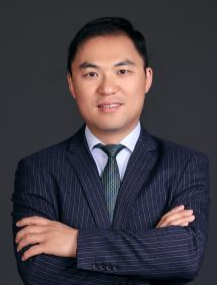Zhiying Feng
Chief Physician
Specializes in pain diagnosis and treatment, has in-depth research and rich clinical experience in various pain management techniques.

• Background: With the continuous development of pain medicine, spinal cord stimulation has shown remarkable efficacy in treating various intractable pain conditions. The First Affiliated Hospital, Zhejiang University School of Medicine leveraging its rich clinical experience and advanced research achievements in the pain field, initiates this international workshop to promote the dissemination and application of spinal cord stimulation techniques.
• Purpose: To enhance the professional skills of global medical practitioners in spinal cord stimulation treatment, and to foster international cooperation and knowledge exchange in the pain management discipline.
• Target Group: International medical doctors, pain specialists, and related medical staff who have a basic understanding of pain medicine and a strong interest in learning spinal cord stimulation therapies.
1. Expert Faculty: The program is led by a team of renowned pain experts from Zhejiang University First Affiliated Hospital, who possess extensive clinical experience and in-depth research insights in spinal cord stimulation.
2. Clinical Case-Based Learning: Trainees will have the opportunity to analyze and discuss a large number of real and complex clinical cases of spinal cord stimulation, enabling them to gain practical problem-solving skills.
3. State-of-the-Art Facility Demonstration: The hospital will showcase its advanced spinal cord stimulation equipment and facilities, providing trainees with a firsthand understanding of the latest technological applications.
4. Multidisciplinary Integration: The training integrates knowledge and techniques from multiple disciplines such as neurology, orthopedics, and rehabilitation, offering a comprehensive perspective on pain management.
1. Vision: To become a premier international training platform for spinal cord stimulation treatment, leading the innovation and development of pain management techniques globally.
2. Prospected Outcome: Trainees will be able to independently perform spinal cord stimulation procedures with high proficiency, accurately diagnose and manage patients suitable for this treatment, and contribute to the improvement of pain management quality in their respective regions.
3. Goal: By the end of the training, trainees will have mastered the theoretical knowledge and practical skills of spinal cord stimulation, including patient selection, device implantation techniques, postoperative management, and complication prevention and treatment.
The total duration of the program is one weeks. It is divided into three days of theoretical learning and four days of clinical practice and hands-on training.
Residents:
1. Hold a valid medical license in their home country.
2. Have at least two years of clinical experience in pain medicine or a related specialty.
3. Provide a letter of recommendation from their affiliated institution.
Clinical Professional Fields, Subspecialties and Skills:
• Clinical Professional Field: Pain Medicine. This field focuses on the diagnosis and treatment of various acute and chronic pain conditions.
• Subspecialties:
Neuromodulation: Specifically dealing with spinal cord stimulation as a neuromodulation technique. Trainees will learn about the physiological mechanisms underlying spinal cord stimulation, how it modulates pain signals in the nervous system, and its applications in different types of neuropathic pain, such as failed back surgery syndrome, complex regional pain syndrome, and diabetic neuropathy.
Interventional Pain Management: This subspecialty involves minimally invasive procedures for pain relief. In relation to spinal cord stimulation, trainees will be trained in the precise techniques of electrode implantation, including percutaneous and surgical implantation methods. They will also learn about the appropriate patient selection criteria for these procedures, as well as the pre-operative and post-operative management strategies to ensure optimal outcomes and minimize complications.
• Skills:
Patient Evaluation and Selection: Trainees will master the skills to comprehensively assess patients with pain, including taking a detailed medical history, performing a physical examination, and interpreting relevant imaging and laboratory results. Based on this evaluation, they will be able to determine whether a patient is a suitable candidate for spinal cord stimulation treatment and develop an individualized treatment plan.
Spinal Cord Stimulation Device Programming: Understanding how to program the spinal cord stimulation device is crucial. Trainees will learn about the different parameters that can be adjusted, such as pulse width, frequency, and amplitude, and how to optimize these settings according to the patient's pain relief needs and tolerance. They will also be trained in troubleshooting common device-related issues and making appropriate adjustments to maintain the effectiveness of the treatment.
Complications Management: Recognizing and managing potential complications associated with spinal cord stimulation is an essential part of the training. Trainees will learn about the early signs and symptoms of complications such as infection, electrode migration, and hardware malfunction. They will be trained in the appropriate management strategies, which may include conservative treatment, device reprogramming, or surgical intervention in severe cases.
Monday
• Opening ceremony, introduction of trainers and trainees, overview of spinal cord stimulation treatment program, lecture on spinal cord stimulation mechanism and history.
Tuesday
• Pain department clinical rounds, lecture on patient selection and evaluation for spinal cord stimulation.
• Research seminar on pain medicine related topics.
Wednesday
• MDT discussion of complex pain cases involving spinal cord stimulation, demonstration of spinal cord stimulation device operation.
• One-on-one tutoring on case analysis.
Thursday
• Clinical skills training of electrode implantation for spinal cord stimulation (simulation), outpatient practice for screening potential spinal cord stimulation patients.
• Group discussion on clinical practice difficulties and solutions.
Friday
• Lecture on postoperative management and complication prevention of spinal cord stimulation, observation of real spinal cord stimulation surgeries.
• Training summary and review, trainee presentations and sharing of learning experiences, feedback collection through questionnaires and interviews.
Assessment Methods:
Written Test: A comprehensive written examination will be conducted, covering theoretical knowledge of pain medicine, spinal cord stimulation mechanisms, patient assessment criteria, device programming principles, and complication management strategies. The written test will account for 40% of the total assessment score.
Practical Assessment: Trainees will be required to perform a series of practical tasks under the supervision of instructors, including patient evaluation and selection simulations, spinal cord stimulation device implantation procedures (using models or in a simulated clinical environment), and device programming and troubleshooting. The practical assessment will contribute 50% to the total score.
Report Submission: Each trainee needs to submit a detailed case report on a spinal cord stimulation treatment they have participated in or a theoretical analysis of a complex pain case with a proposed treatment plan. The report submission will make up the remaining 10% of the assessment.
Certificate Provision: Upon successful completion of the training program and passing the assessment with a minimum score of 60%, trainees will be awarded a certificate of completion from Zhejiang University First Affiliated Hospital, which attests to their proficiency in spinal cord stimulation treatment and related skills.
Trainees will have the opportunity to provide feedback through a structured online questionnaire at the end of the training program. The questionnaire will cover aspects such as the quality of teaching materials, clarity of instruction, practical training experience, adequacy of clinical case exposure, and overall satisfaction with the program. Additionally, trainees can also participate in a face-to-face feedback session with the program coordinators and instructors to share their thoughts and suggestions in more detail. The feedback collected will be carefully analyzed and used to improve future iterations of the training program.

Chief Physician
Specializes in pain diagnosis and treatment, has in-depth research and rich clinical experience in various pain management techniques.

Associate Chief Physician
Proficient in interventional pain treatment methods and the application of advanced pain treatment technologies.

Attending Physician
Focuses on the research and treatment of neuropathic pain, and is well-versed in related pathophysiological mechanisms.

Associate Chief Physician
Skilled in multimodal pain management strategies and the combination of different treatment modalities.

Attending Physician
Specializes in pain assessment and individualized treatment planning, and is experienced in dealing with complex pain cases.

Attending Physician
Concentrates on the research and clinical application of innovative pain treatment approaches and the exploration of new pain treatment concepts.
The program is free of charge.